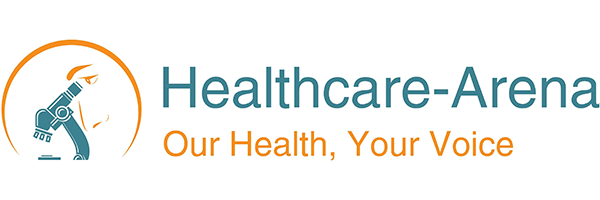I suspect that any of the Bright, Young, Things (BYTs) reading this will have never experienced the thrill of writing a memo (yes, that’s memo not meme), or opening one of those tatty brown internal mail envelopes that were re-used until all the addressee boxes were filled. And because BYTs are used to technology, they are unlikely to have experienced that feeling of dread/nausea/suicide when one realises one has clicked the reply all button…
No, it’s social media (SoMe, apparently) all the way now; web-based applications that allow the creation and exchange of content. These include blogs, micro-blogs (Twitter), internet forums (doctors.net), communities (YouTube, Flickr), and social/business networking sites (Facebook, LinkedIn). A plethora of information/photo/CV sharing sites and apps exist, catering for all tastes and competency levels. We share everything from requests for charity sponsorship, through personal achievements, clinical skills and knowledge and hula-hooping cats. And undoubtedly there are benefits for health care professionals. For example:
- Networking [1]
- Professional development/education [1]
- Sharing good practice [1]
- Patient education/disease management [1]
- engaging people in public health and policy discussions [2]
- establishing national and international professional networks [2]
- facilitating patients’ access to information about health and services [2]
- Building and maintaining professional relationships [3]
- Establishing or accessing nursing and midwifery support [3]
- Networks and being able to discuss specific issues, interests, research and clinical experiences with other healthcare professionals globally [3]
- Being able to access resources for continuing professional development [3]
But is there a danger we’d be tempted to share a quick picture of an embarrassing boil without the patient’s permission, or a rant about our manager/patient/trust? It seems there is. The Health and Care Professions Council (HCPC) recently struck from the register a paramedic who made “offensive and derogatory Facebook posts about patients and the public” [4]. In another case, a radiographer was struck off for posting sexually explicit messages and images to a colleague via Facebook [5]. In the year 2012 – 2013, nine nurses were found proven of misconduct due to the misuse of social media. Of these, 3 were struck off, 3 received a suspension order, 2 were cautioned and 1 had a substantive order allowed to expire [6].
Social media can also raise some ethical questions – what to do if a patient asks you to be a friend on Facebook, or requests clinical information (whether a general question or specific to themselves)?
Advice
Fortunately, our professional regulatory bodies have produced guidance – some comprehensive, some not so much – on the use of social media. The General Medical Council for example, tie the standards and behaviours required when using social media to those used in ‘usual’ communication [2]:
- Maintain boundaries
- Maintain confidentiality
- Respect colleagues
- Conflict of interest
Similarly, the Health & Care Professionals Council (HCPC) have taken the same approach stating [7]:
‘You should make sure that when you use the sites, your usage is consistent with the standards that we set. The relevant standards from the standards of conduct, performance and ethics are as follows…’ [7]
- You must act in the best interests of service users
- You must respect the confidentiality of service users
- You must keep high standards of personal conduct
- You must behave with honesty and integrity and make sure that your behaviour does not damage the public’s confidence in you or your profession
The Nursing & Midwifery Council (NMC) in its usual pile-driver to crack a pine nut approach has produced a six-page advisory document [3]. Given that one of the major Tweeting movements – ‘We Nurses’, which has since spawned ‘We managers/doctors/pharmacists’ – was begun by a nurse, one could have given nurses some credit for intelligence, but… Thus, in this mighty tome, the NMC emphasises how the use of SoMe should tie in with the Code of Conduct Principles and one that should
“Use all forms of spoken, written and digital communication (including social media and networking sites) responsibly.” [3]
The Royal College of General Practitioners has also produced the ‘Social Media Highway Code’, a weighty but useful document [8].
Conclusion
There is no doubt that social media is an excellent tool for professional development, communication with peers and patients, and for networking. However, caveats are thrown in like raisins into cake batter, and are ignored at your peril. With the plethora of guidance available from the relevant public bodies and some common sense (immobilising one’s thumbs after a certain amount of alcohol perhaps?!) should ensure that you do not lose your registration and career over a hastily sent Tweet.
If you would like to comment on any of the issues raised by this article, particularly from your own experience or insight, Healthcare-Arena would welcome your views.
References
- Ventola C Lee. Social Media and Health Care Professionals: Benefits, Risks, and Best Practices. P & T. 2014. 39; 7:491-520. http://www.ncbi.nlm.nih.gov/pmc/articles/PMC4103576/ Accessed August 2015
- General Medical Council. Doctor’s use of social media (2013). http://www.gmc-uk.org/guidance/ethical_guidance/21186.asp Accessed August 2015
- Nursing & Midwifery Council. Guidance on Using Social Media Responsibly. NMC. 2015. http://www.nmc.org.uk/globalassets/sitedocuments/nmc-publications/social-media-guidance-30-march-2015-final.pdf Accessed August 2015
- Lintern S. Paramedic struck off over ‘offensive’ Stafford Hospital Facebook posts. HSJ. 6th August 2015. http://www.hsj.co.uk/hsj-local/acute-trusts/university-hospitals-of-north-midlands-nhs-trust/paramedic-struck-off-over-offensive-stafford-hospital-facebook-posts/5089457.article?WT.tsrc=email&WT.mc_id=Newsletter2 Accessed August 2015
- Health & Care Professionals Council (HCPC). Radiographer struck off after sending sexually explicit messages on Facebook. 2015. http://www.hcpc-uk.org/mediaandevents/pressreleases/index.asp?id=971 Accessed August 2015
- Smith J. Response to Freedom of Information Act. Nurses struck off/suspended due to misuse of social media. 2013. https://www.whatdotheyknow.com/request/nurses_suspendedstruck_off_due_t Accessed August 2015
- Health & Care Professionals Council (HCPC). Use of social networking sites. 2014. http://www.hpc-uk.org/registrants/standards/socialnetworking/ Accessed august 2015
- Riley B, Gerada C. Social Media Highway Code. The Royal College of General Practitioners. 2013. http://www.rcgp.org.uk/~/media/Files/Policy/A-Z-policy/RCGP-Social-Media-Highway-Code.ashx Accessed August 2015









